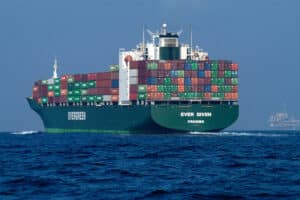Shutdowns of Chinese factories since the COVID-19 outbreak are having a longer and larger-than-expected effect on U.S. imports, according to the leading retail industry group.
The National Retail Federation said February imports at major U.S. container ports were estimated at 1.42 million TEU’s, a unit equivalent to a 20-foot-long cargo container, down 12.6 percent from the previous year and lower than the 1.54 million TEU’s forecast before the virus outbreak. It forecast March levels at 1.32 million TEU, down 18.3 percent from last year, but left open the possibility that “some sort of normalcy” will return to global trade by late March or early April.
“There are still a lot of unknowns to fully determine the impact of the coronavirus on the supply chain,” NRF Vice President Jonathan Gold said in a statement. “As factories in China continue to come back online, products are now flowing again. But there are still issues affecting cargo movement, including the availability of truck drivers to move cargo to Chinese ports.”
A separate recent NRF survey found that 40 percent of members are experiencing supply chain disruptions.
Disruptions of the supply chain could hurt retailers such as electronics chains and dollar stores that rely heavily on Chinese imports, according to retail industry analysts. And executives from Boston-based furniture vendor Wayfair, which imports approximately half of its products from China, recently said the company has experienced supply chain disruptions.
Consultants Hackett Associates compiled the report for the NRF based upon data from the ports of Los Angeles/Long Beach, Oakland, Seattle, Tacoma, New York/New Jersey, Port of Virginia, Charleston, Savannah, Port Everglades, Miami, Jacksonville and Houston.








